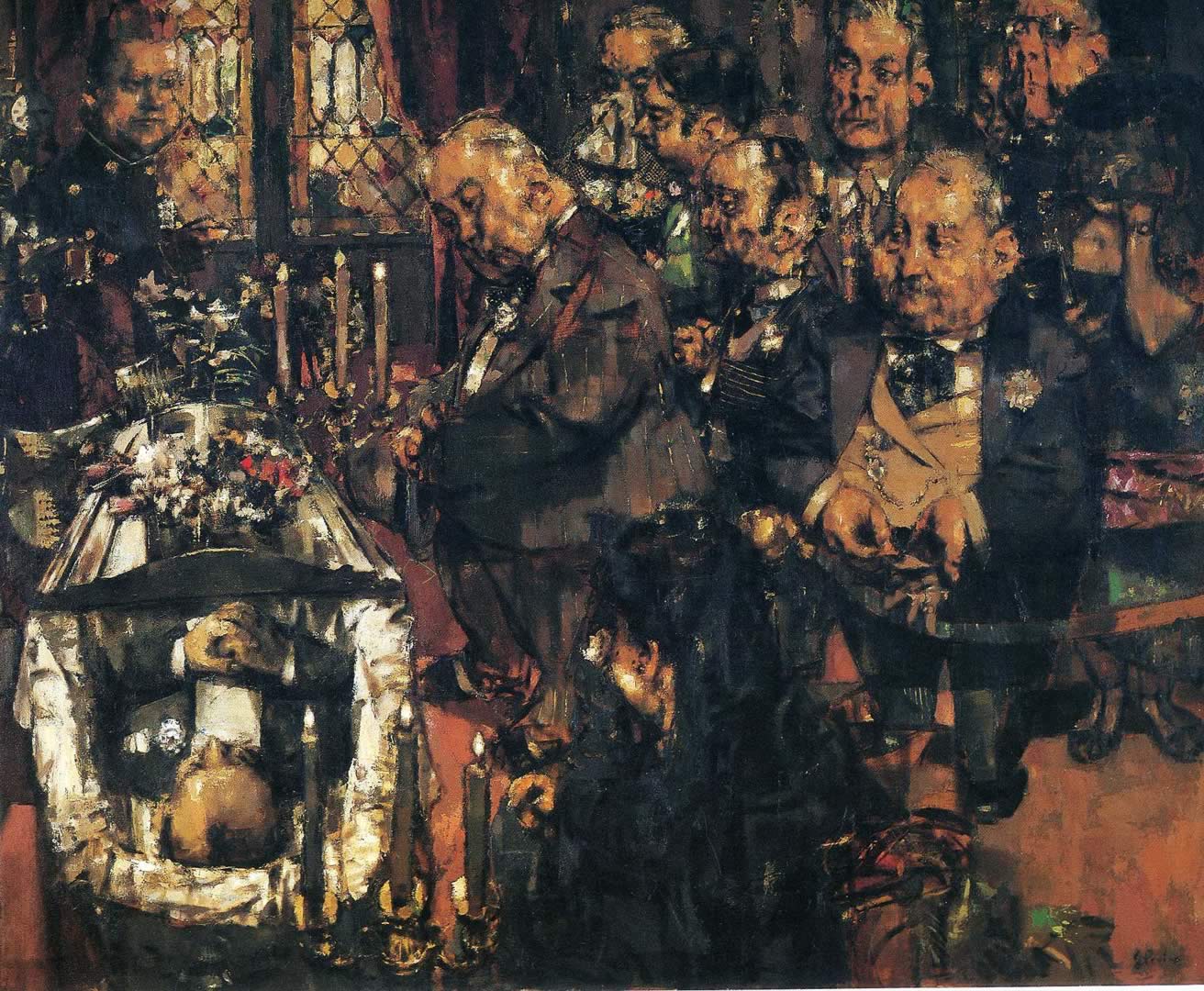Dov Lipman has a problem with Hebrew. No, I don't think that he can't speak it very well. As a (relatively) recent immigrant, he seems to have a fairly good command of the local language, and he doesn't shy away from using it. He is also reportedly taking (or will be taking) Hebrew lessons, using a stipend which is part of his compensation package as a Member of Knesset.
Lipman's problem is that Hebrew does not have a case distinction. The form of each letter does not change to reflect the meaning of the word. For example, Potsie may have gone to
Ralph at Arnold's Drive In, but he would never admit to going to
ralph at Arnold's Drive In. Similarly, many Orthodox American Jews describe themselves as being "conservative with a small 'c'".
Lipman calls himself a "chareidi" (ultra-orthodox). He has done it in private, in public, and from the floor of the Knesset. It's pretty much beyond dispute that he fully sees himself as being chareidi.
However, not everyone agrees. MK Yaakov Asher from the chareidi UTJ party certainly does not. In a recent speech,
Lipman responded to Asher's charge that he (Lipman) is not chareidi. The thrust of his argument was that the word "chareidi" is from the the verse in Isaiah (66:5) in which the prophet speaks to those who "tremble before the word of God".
The problem is that Lipman is constrained by the Hebrew language. In English, we might say that someone is "Chareidi with a capital "ch", to stress that he is a member of a particular socioeconomic group called "chareidim". Someone who "trembles before the word of God", i.e., he takes his religious duties seriously in all aspects of his life might very well consider himself to be "chareidi", but he is not "Chareidi".
Lipman's detractors seem to be at a loss, since their native language doesn't allow for this distinction. They know that there's a flaw in Lipman's assertion, but they lack the vocabulary to express it. If they did, they may point out that according to Lipman's own logic, he could also be described as Dati Leumi (Religious Zionist), Masorati (Conservative, literally means "traditional"), Meshichist (Messianic; OK, that one's a bit of a stretch), or a Maskil (literally, "enlightened" or "educated", he is certainly more educated than many other members of Knesset; this term is used to refer to a forerunner of Reform Judaism).
This is more than merely a semantic issue. Lipman is obfuscating the difference between the etymology of a word and its meaning. (I hesitate to make the comparison, but it illustrates the point very well. A well-known Arab leader once responded to a charge of being antisemitic by claiming that he couldn't be, since he was Semitic as well. He confused, perhaps on purpose, the origin of the term "antisemitic" with the fact that term was coined to mean "hatred of Jews", not "hatred of anything with Semitic origins".) The word "Chareidi" may come from the verse referring to those that "tremble before the word of God", but not everyone who takes his religious duties seriously (as I have no doubt that Lipman does, and no less so than any other member of Knesset) is part of the socioeconomic group known as "Chareidim".
There's always the big issue of "so what?". In other words, what's the harm in letting Lipman call himself a Chareidi? Who is he hurting? As a public figure, and especially as a member of Knesset, his association with particular groups is important. If a leading figure in the Likud, for example, would call for an end to port strikes, it would probably be ignored. But if a leading member of the Labor party, for example, would make a similar call, it would have a huge impact in the conversation about the justification of such strikes. The Labor party strives to represent the worker, and their taking a stance against workers' historical position would lend credence to the call.
(When I was growing up, this was known as the "own teammate" argument. In an unorganized sports game, any disputed call which was agreed to by a member of the team against which the call was made was almost always accepted, since even your "own teammate" agreed to it. To the pre-adolescent mind, this line of reasoning was widely considered to be unassailable. Even to more mature minds, this type of logic, while not airtight, carries a great deal of weight.)
Similarly, Lipman is in a position in which he makes calls which are generally against the ones made by Chareidi leadership. By claiming membership in the group, he is giving the impression that he represents the group. He does not. There may be many Chareidim who agree with him, and his views may have solid foundation in traditional Torah sources, but he is not "Chareidi".
 It used to be that anytime there was an explosion on a bus (or other public place), the safe assumption was that it was a suicide bomber (or a mob hit). The past two explosions on buses (one yesterday, and one last year during Operation Pillar of Defense) both proved to have been explosive devices left on buses (and thankfully non-fatal).
It used to be that anytime there was an explosion on a bus (or other public place), the safe assumption was that it was a suicide bomber (or a mob hit). The past two explosions on buses (one yesterday, and one last year during Operation Pillar of Defense) both proved to have been explosive devices left on buses (and thankfully non-fatal).








